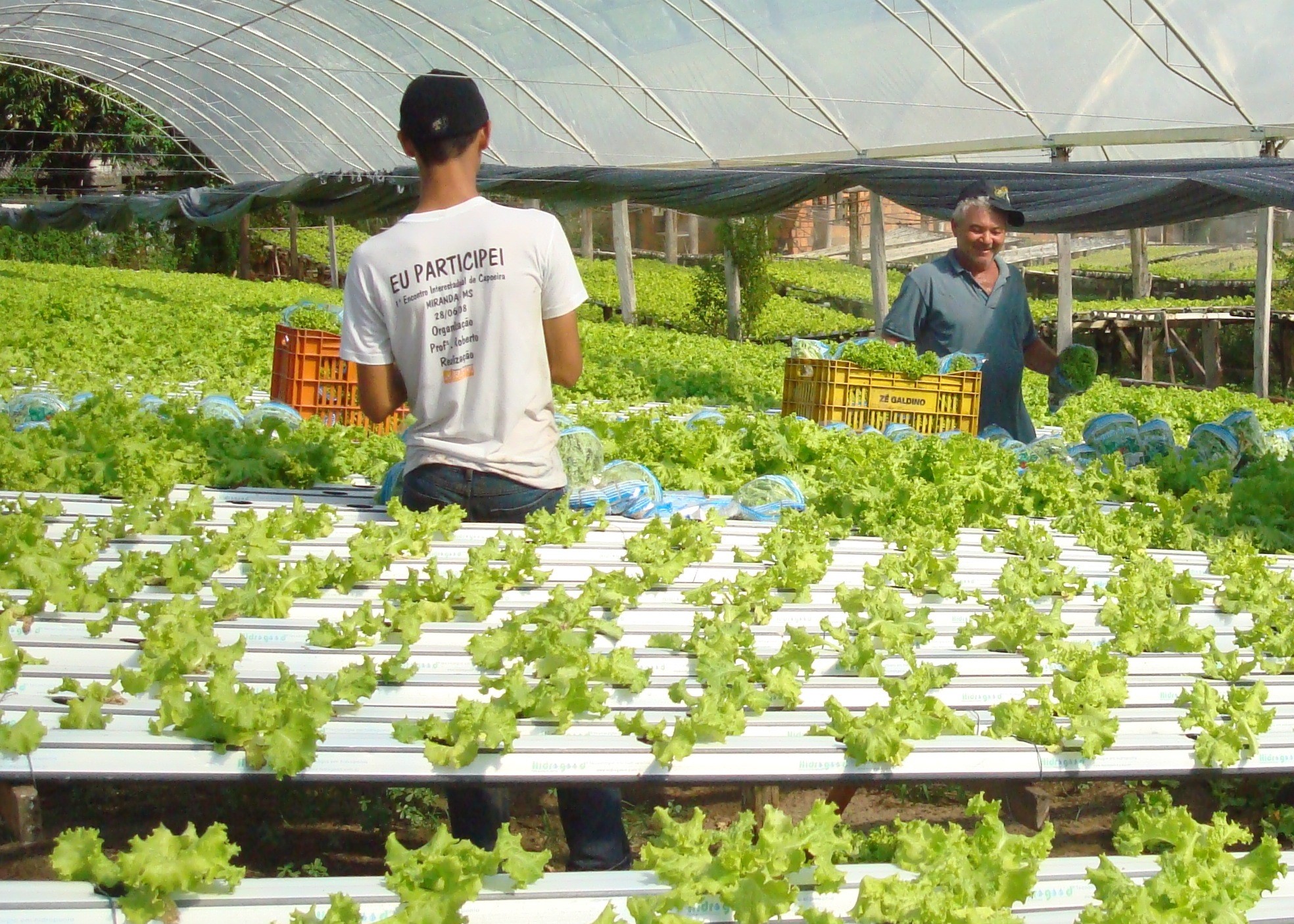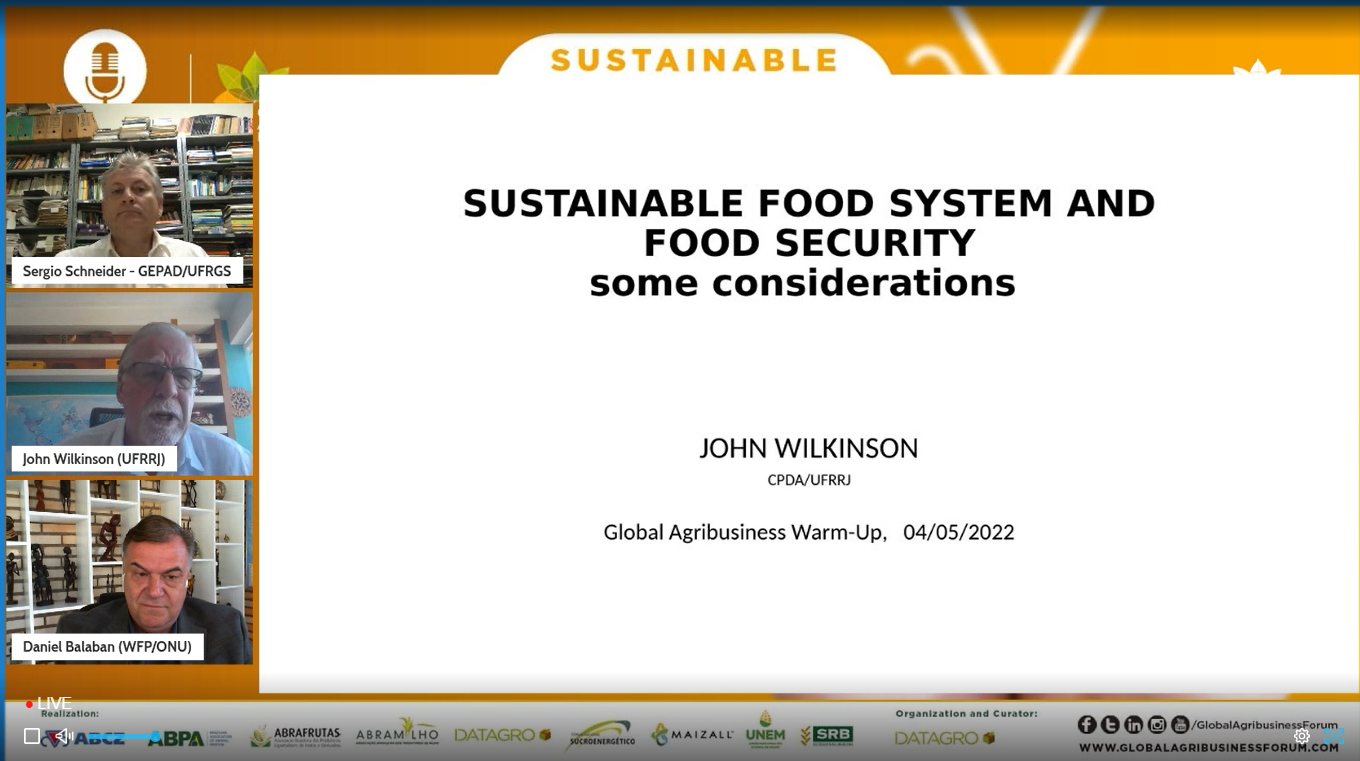
Daniel Balaban, Director of the WFP Centre of Excellence against Hunger Brazil, took part, on Wednesday May 4th, in the 4th warm-up session of the Global Agribusiness Forum which addressed Sustainable Food System and Food Security. The event is promoted by large entities of the agribusiness sector and is an opportunity to highlight the current challenges and possible solutions for fighting hunger and promoting sustainable food systems.
“The world is living a hunger catastrophe and conflict is still its biggest driver, with 60% of the worlds hungry living in areas afflicted by war and violence. It is a shame,” said Daniel Balaban in his remarks. In addition to conflict, climate shocks, the COVID-19 pandemic and rising food costs are also contributing for an increase in hunger levels across the globe.
During his presentation, Daniel Balaban also detailed concepts around food security, which involves stable supply, risk reduction and environmental sustainability. “Efficient agrifood systems and biodiversity are also key to the solutions needed to end hunger. We need to talk about this every day, as our ecosystems are disappearing before our eyes. We need to create sustainable systems while also looking at the environment,” he added.
He also detailed a roadmap for ending hunger and extreme poverty, which includes: the creation of inclusive and sustainable value chains; ensuring investments in agricultural industrialisation with positive social, economic and environmental impacts; and a combination of the capacities of local and regional actors in analysis, technical assistance, political dialogue and investment promotion. “We need to nourish people with healthy, nutritious food, boost nature-based solutions, empower communities and build resilience”.

John Wilkinson, Professor at the Postgraduate Programme of Social Sciences in Development, Agriculture and Society at UFRRJ, also spoke at the session. “Food systems are in radical need for repair and there is a need for a new innovation paradigm, with COVID-19, the Ukraine conflict and extreme climate events all playing an important role, resulting in the need for more radical alternatives”, he said.
He also presented data on innovative solutions in alternative proteins production, controlled environment agriculture (such as vertical farms and factories with artificial lighting), the importance of public policies and the need to integrate food systems into urban policy and planning. The session was moderated by Sérgio Schneider, Professor at the Department of Sociology and permanent member of the Graduate Programmes in Rural Development and Sociology at UFRGS.
The Agribusiness Forum main event will take place on 25-26 July. More information can be found here.




